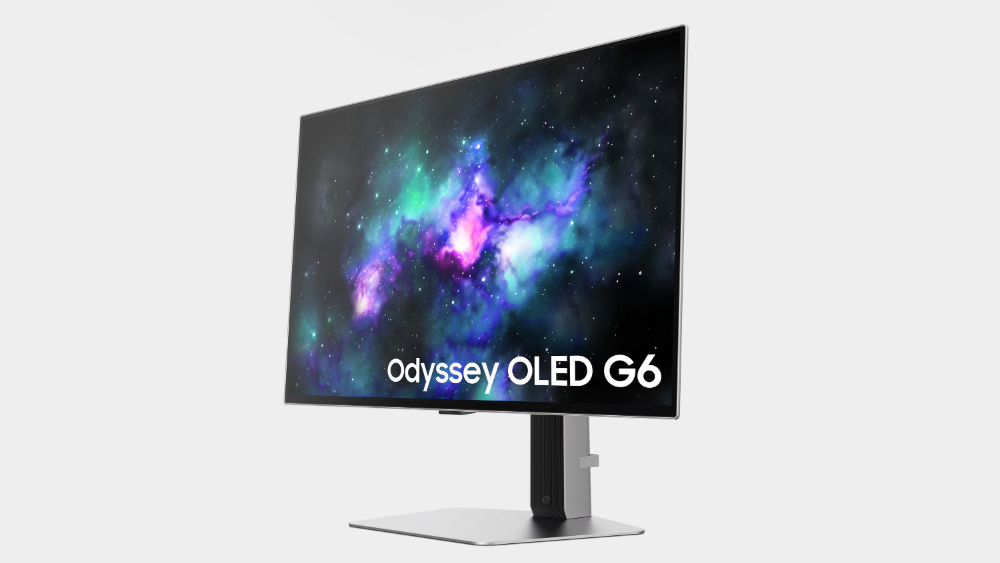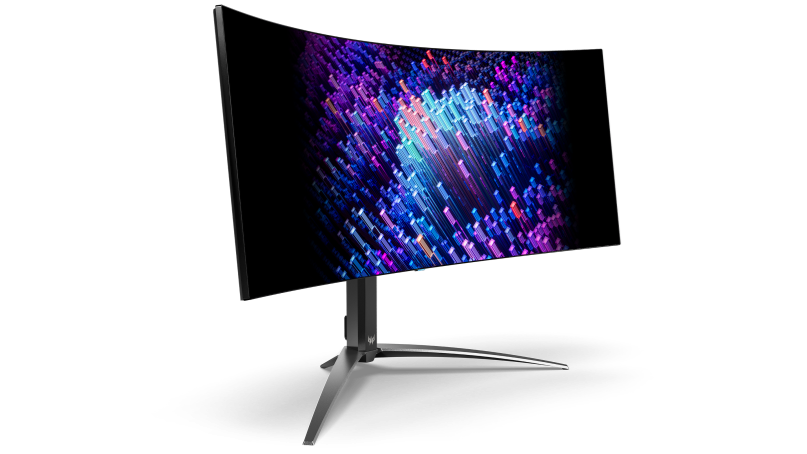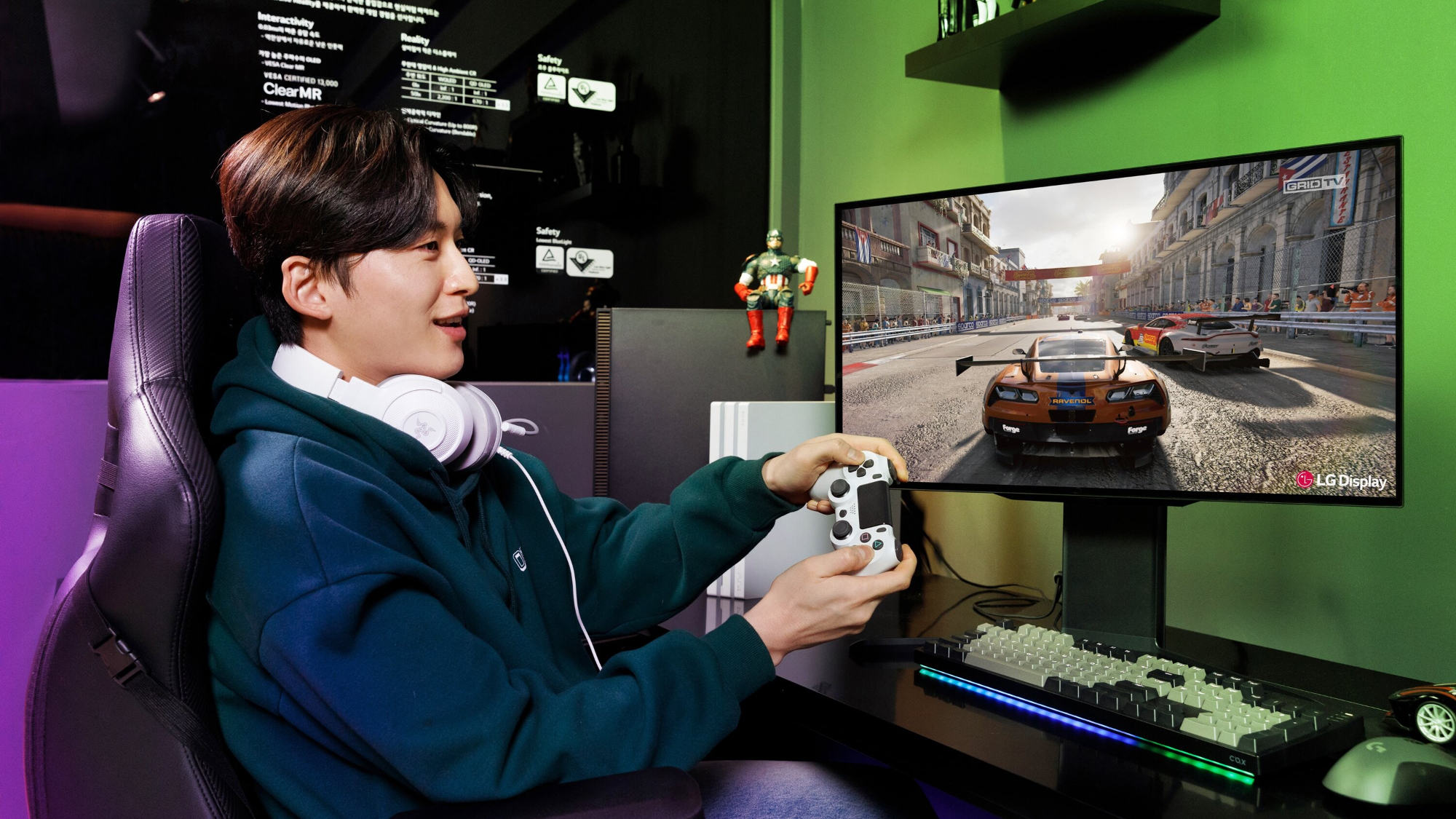Ultra-fast screens with ridiculous refresh rates are all the rage at CES 2024 – but does anybody care?
Laptop and monitor makers are pushing ever-faster refresh rates at CES – but why?

The huge CES 2024 tech expo in Las Vegas doesn't officially start until tomorrow, but I’ve already spotted a trend coming into this year's show: ultra-fast refresh rates for monitors and screens.
We’ve already had LG showing off a new 27-inch OLED monitor with an eye-popping 480Hz refresh rate, MSI highlighting its MPG 321URX / 271QRX monitors at up to 360Hz, and Acer launching two large-screen gaming monitors, the 39-inch Predator X39 and the 34-inch Predator X34 X, with up to 240Hz refresh rates.
Samsung, meanwhile, has launched three new Odyssey gaming monitors – the Odyssey OLED G9 and Odyssey OLED G8 come with 240Hz refresh rates, while the Odyssey OLED G6 goes up to 360Hz.
It’s not just standalone monitors that are chasing ever-faster refresh rates; Razer has shown off its new Blade 16 and Blade 18 gaming laptops, which come with OLED screens boasting 240Hz refresh rates, a world first.
These companies appear to think consumers are demanding higher refresh rates, but is that really the case? I’m not so sure.

The pros and cons of higher refresh rates
I admit that I can be as guilty as the next tech obsessive when it comes to thinking that higher numbers equal better gadgets – that’s why I’m one of the few people who has an 8K TV, and why I obsessively test new PC games when they come out to see how well they play at that stupidly-high resolution.
However, I also know, thanks to seeing how often games become unplayable slideshows at 8K, that higher numbers don’t matter if too many compromises are made in order to achieve them.
Sign up for breaking news, reviews, opinion, top tech deals, and more.
At the moment, that’s still the case for ultra-fast refresh rates. In order to make the most out of a 360Hz or 480Hz refresh rate, you’re really going to want a very powerful (and expensive) graphics card to hit those high frame rates. Even then, you’re probably going to have to lower some graphical settings – trading visual splendor for higher frame rates is a compromise I’ve often had to make when gaming at 8K, and it’s something I hate doing.

You’ll also have to make a compromise in terms of resolution, with these ultra-fast refresh rate monitors only supporting 1080p or 1440p – much lower than the 4K resolution that a lot of ‘slower’ gaming monitors sport.
For PC gamers like myself, who primarily play single-player, graphically impressive (and intensive) games, sacrificing visual quality in order to facilitate refresh rates that, while impressively fast, don’t add much to our gaming experience means this refresh rate arms race isn’t as thrilling as manufacturers may think.
There are, of course, benefits to higher refresh rates. For a start, your PC will feel much smoother and more responsive, even when you’re not playing games. And in games this is particularly noticeable – the imagery will feel a lot more fluid, and fast-paced action sequences will be free from blurring, ghosting and other distracting visual imperfections, which helps to make games feel more immersive.

It can also eliminate screen tearing. This is a particularly annoying effect where the graphics displayed on the screen appear to torn in half, with one half slightly slower than the other. This is caused when the GPU is trying to hit frame rates the monitor can’t cope with – so having a higher refresh rate allows for higher frame rates.
Higher refresh rates can also improve your performance in a game, allowing you to respond much more quickly to enemies and attacks. In competitive online gaming, where graphics are less important than reaction times, having an incredibly high refresh rate could give you a big advantage.
It’s these gamers that Acer, Samsung and the rest are targeting with these new super-fast monitors, and the high component demands and extra costs will likely be seen as a good investment.
For the rest of us gamers, the best gaming monitors remain ones that strike a balance between graphics and speed. In my opinion, 4K at 120Hz or 144Hz offers the best experience; still, I’m glad that display makers are continuing to push the envelope when it comes to performance, even if I’m not persuaded to buy their products just yet.
You might also like...
- Samsung introduces the world’s first wireless 8K projector
- Read up on 3 things we really want to see at CES 2024
- Learn how to watch and follow CES 2024 from home
Check out our CES 2024 hub for all the latest news from the show as it happens. We'll be covering everything from 8K TVs and foldable displays to new phones, laptops, smart home gadgets, and the latest in AI, so stick with us for the big stories.
And don’t forget to follow us on TikTok for the latest from the CES show floor!

Matt is TechRadar's Managing Editor for Core Tech, looking after computing and mobile technology. Having written for a number of publications such as PC Plus, PC Format, T3 and Linux Format, there's no aspect of technology that Matt isn't passionate about, especially computing and PC gaming. He’s personally reviewed and used most of the laptops in our best laptops guide - and since joining TechRadar in 2014, he's reviewed over 250 laptops and computing accessories personally.